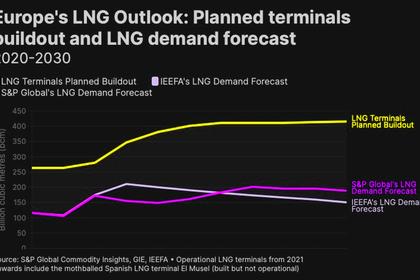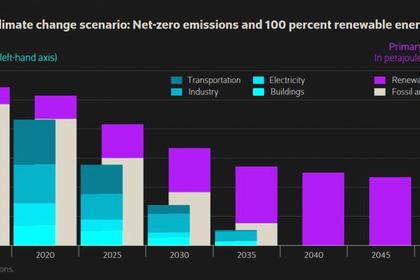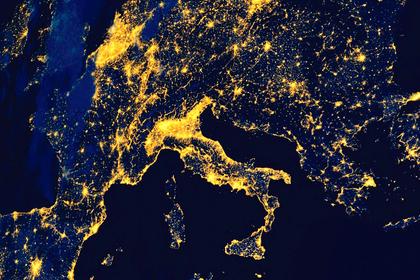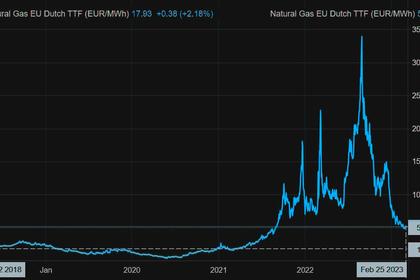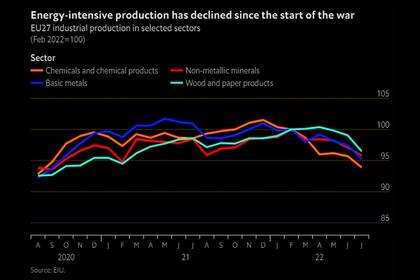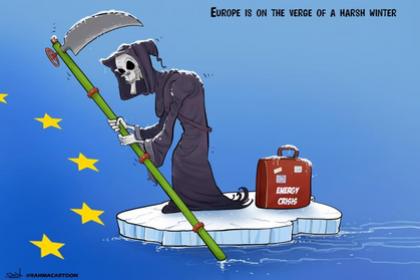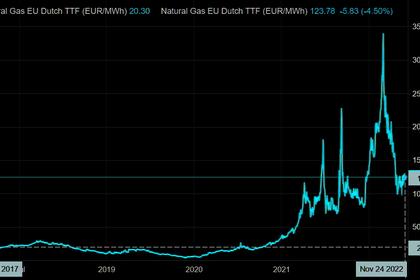
EUROPEAN NUCLEAR RENEWABLES
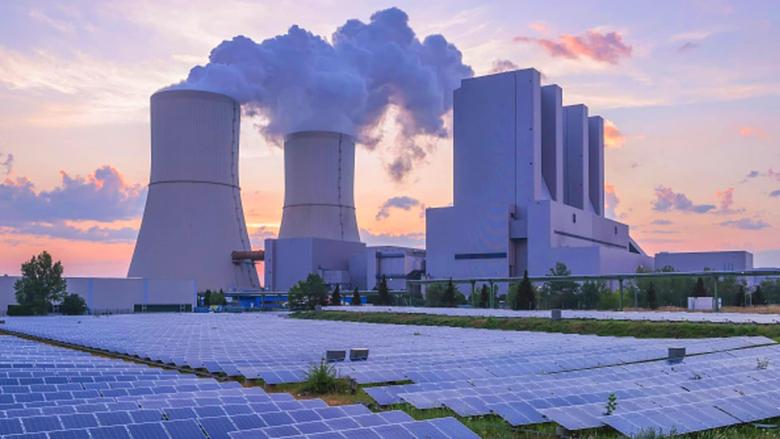
BLOOMBERG - May 17, 2023 - A key element of the European Union’s Green Deal package has been delayed after France, the bloc’s biggest supporter of nuclear power, said it won’t back a law to scale up renewable energy.
Member-state officials had been due to endorse the Renewable Energy Directive at a meeting Wednesday, paving the way for a formal vote in the coming weeks. Yet French concerns over the role of nuclear in climate goals for industry, plus opposition from some central and east European countries worried about green-transition costs, saw the law struck from the agenda.
The wrangling is a further blow for the EU’s Green Deal, with various elements thrown into doubt by countries’ domestic political concerns. France, which relies on nuclear for the bulk of its electricity supply, has been pushing to allow a greater role for the technology in the energy transition.
“We start to see a pattern here, and not by coincidence. As Europe’s climate policy gathers pace, impacts will start to be felt more and more also in core countries like Germany and France – and not only in the East as it used to be,” said Simone Tagliapietra, analyst at Bruegel think tank based in Brussels. “If not addressed properly, this might become a dangerous spiral slowing down Europe’s green transition.”
The RED was taken off Wednesday’s agenda following objections from France and other countries, people with knowledge of the matter said. Paris may be looking for additional assurances from the European Commission on the role of nuclear in exchange for dropping its opposition, they said.
France is objecting to the small role nuclear could play in meeting 2030 targets for green hydrogen in industry amid concerns about the cost of converting ammonia plants from gas to electricity. It has previously signaled that it would also like to see nuclear included in a list of strategic clean energy technologies that the EU wants to produce domestically.
The delay echoes a last-minute hiccup that hampered EU legislation on car emissions earlier this year as Germany pushed to include so-called e-fuels in the regulation. After weeks of heated talks, the country dropped its opposition after securing assurances of a carve-out for the fuels, while the law itself was left unchanged.
Such hitches are unusual in EU lawmaking, but France is now following Germany’s playbook: protesting once EU negotiators have already reached a framework deal. Back in March, member states and parliament agreed to raise the 2030 renewable target to 42.5% of total energy consumption, while providing a small role for nuclear.
Under EU rules, the text of the deal can’t be changed by member states alone; it would require reopening negotiations. The French prime minister’s office, Energy Transition Ministry and the country’s permanent representative to the EU didn’t immediately respond to requests for comment. The European Commission declined to comment.
Nuclear Trade-Off
A further date to address the renewables directive has not yet been set by Sweden — which holds the EU’s rotating presidency — according to people familiar with the situation.
The March accord on the RED allowed countries to reduce their green-hydrogen targets for industry if they mainly used nuclear power — rather than fossil fuels — to produce the rest of their hydrogen and kept renewable goals on track.
But France, Slovakia, Hungary, Poland, the Czech Republic, Bulgaria and Romania all signaled they wouldn’t support that agreement, according to a person with knowledge of the matter. And Markus Pieper, the center-right European Parliament lawmaker responsible for negotiating the deal, has admitted only Sweden would be able to benefit from the carve-out.
Another segment of the Green Deal — the ReFuelEU Aviation initiative, which is aimed at increasing the use of sustainable fuel in air travel — was also pulled from Wednesday’s agenda, the people said.
-----
Earlier:
